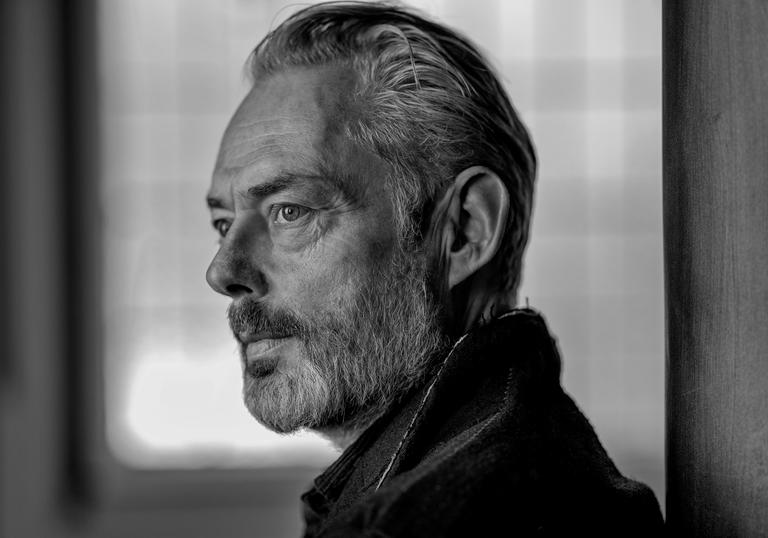
Programme and Performers
Programme
Robert Schumann Liederkreis, Op 24
1. Morgens steh' ich auf und frage
2. Es treibt mich hin
3. Ich wandelte unter den Bäumen
4. Lieb' Liebchen
5. Schöne Wiege meiner Leiden
6. Warte, warte, wilder Schiffmann
7. Berg und Burgen schaun herunter
8. Anfangs wollt' ich fast verzage
9. Mit Myrten und Rosen
Robert Schumann Sechs Gedichte und Requiem, Op 90
1. Lied eines Schmiedes
2. Meine Rose
3. Kommen und Scheiden
4. Die Sennin
5. Einsamkeit
6. Der schwere Abend
7. Requiem
Robert Schumann Dichterliebe, Op 48
1. Im wunderschönen Monat Mai
2. Aus meinen Tränen sprießen
3. Die Rose, die Lilie
4. Wenn ich deine Augen seh’
5. Dein Angesicht
6. Lehn’ deine Wang’
7. Ich will meine Seele tauchen
8. Im Rhein, im heiligen Strome
9. Ich grolle nicht
10. Und wüßten’s die Blumen, die kleinen
11. Das ist ein Flöten und Geigen
12. Hör’ ich das Liedchen klingen
13. Ein Jüngling liebt ein Mädchen
14. Am leuchtenden Sommermorgen
15. Es leuchtet meine Liebe
16. Mein Wagen rollet langsam
17. Ich hab’ im Traum geweinet
18. Allnächtlich im Traume
19. Aus alten Märchen winkt es
20. Die alten, bösen Lieder
Performers
Mark Padmore tenor
Jonathan Biss piano
Liederkreis, Op 24
Morgens steh’ ich auf und frage:
Kommt feins Liebchen heut?
Abends sink’ ich hin und klage:
Ausblieb sie auch heut.
In der Nacht mit meinem Kummer
Lieg’ ich schlaflos, lieg’ ich wach;
Träumend, wie im halben Schlummer,
Wandle ich bei Tag.
Every morning I awake and ask:
Will my sweetheart come today?
Every evening I lie down,
Complaining that she did not appear.
All night long with my grief
I lie sleepless, lie awake;
Dreaming, as if half asleep,
I wander through the day.
Sechs Gedichte und Requiem, Op 90
Fein Rösslein, ich
Beschlage dich,
Sei frisch und fromm,
Und wieder komm!
Trag deinen Herrn
Stets treu dem Stern,
Der seiner Bahn
Hell glänzt voran!
Trag auf dem Ritt
Mit jedem Tritt
Den Reiter du
Dem Himmel zu!
Nun Rösslein, ich
Beschlage dich,
Sei frisch und fromm,
Und wieder komm!
Fine little steed,
You'll soon be shod,
Be frisky and good,
And come back again!
Carry your master
Ever true to the star
That shines brightly
On his path!
With each step
As you go,
Carry your rider
Nearer heaven!
There, little steed,
Now you're shod,
Be frisky and good,
And come back again!
Dichterliebe, Op 48
-
1. Im wunderschönen Monat Mai
-
2. Aus meinen Tränen spriessen
-
3. Die Rose, die Lilie, die Taube, die Sonne
-
4. Wenn ich in deine Augen seh
-
5. Dein Angesicht
-
6. Lehn deine Wang’
-
7. Ich will meine Seele tauchen
-
8. Im Rhein, im heiligen Strome
-
9. Ich grolle nicht
-
10. Und wüssten’s die Blumen, die kleinen
-
11. Das ist ein Flöten und Geigen
-
12. Hör’ ich das Liedchen klingen
-
13. Ein Jüngling liebt ein Mädchen
-
14. Am leuchtenden Sommermorgen
-
15. Es leuchtet meine Liebe
-
16. Mein Wagen rollet langsam
-
17. Ich hab’ im Traum geweinet
-
18. Allnächtlich im Traume
-
19. Aus alten Märchen
-
20. Die alten, bösen Lieder
Im wunderschönen Monat Mai,
Als alle Knospen sprangen,
Da ist in meinem Herzen
Die Liebe aufgegangen.
Im wunderschönen Monat Mai,
Als alle Vögel sangen,
Da hab’ ich ihr gestanden
Mein Sehnen und Verlangen.
In the wondrous month of May,
When all the buds burst into bloom,
Then it was that in my heart
Love began to burgeon.
In the wondrous month of May,
When all the birds were singing,
Then it was I confessed to her
My longing and desire.
Artist biographies
Mark Padmore has established an international career in opera, concert and recital. His appearances in Bach Passions as Evangelist in the St Matthew and St John Passions with the Berlin Philharmonic Orchestra and Simon Rattle (staged by Peter Sellars) attracted worldwide acclaim.
A highlight of Mark's 2021/22 season is a residency at Wigmore Hall where he celebrates his relationship with pianists Till Fellner, Imogen Cooper, Mitsuko Uchida and Paul Lewis. Elsewhere he will give recitals with Simon Lepper and Kristian Bezuidenhout and a major US tour with Mitsuko Uchida. Other appearances include a staged Britten War Requiem at the Liceu Barcelona and directing performances of St John Passion with the Orchestra of the Age of the Enlightenment.
Mark appeared in a new ROH, Covent Garden production of Britten’s Death in Venice. Other notable operas have included leading roles in Harrison Birtwistle The Corridor and The Cure at the Aldeburgh Festival; Captain Vere in Britten Billy Budd Glyndebourne Festival and the world premiere of Tansy Davies Cave with the London Sinfonietta. Mark was Artist in Residence for the 2017/18 Season with the Berlin Philharmonic Orchestra and held a similar position with the Bavarian Radio Symphony Orchestra for 2016/17. His work with the Orchestra of the Age of Enlightenment has involved projects exploring both Bach St John and St Matthew Passions and has attracted worldwide acclaim.
Mark is Artistic Director of the St Endellion Summer Music Festival.
